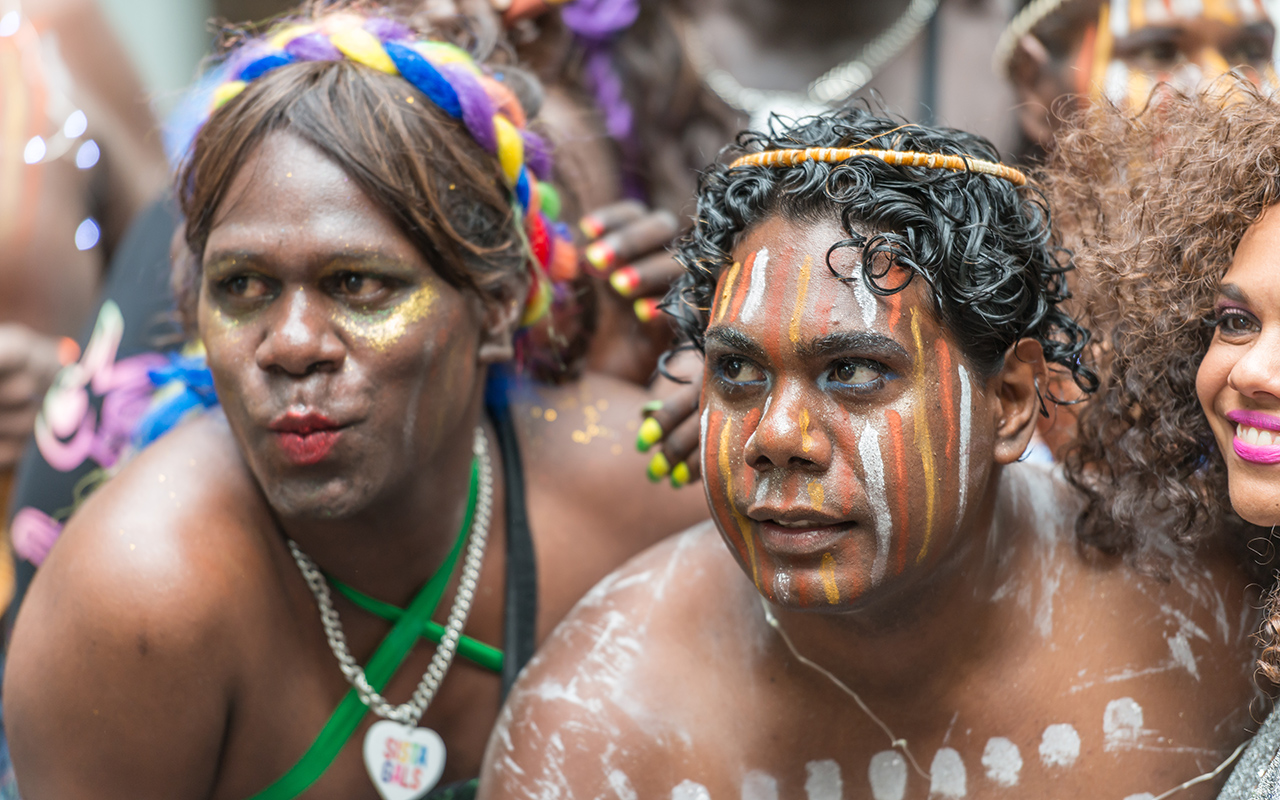UNDERSTANDING the multiple identity groups of Aboriginal and Torres Strait Islander LGBTQ+ young people can assist in meeting their health care needs, according to the authors of a Perspective published by the MJA.
Aboriginal and Torres Strait Islander LGBTQ+ (lesbian, gay, bisexual, transgender, queer, and other non‐heteronormative or non‐binary sexual and gender identities, including asexual) young people occupy three intersecting identities, which, when considered separately, are each linked to risks for poor health, wrote the authors, led by Dr Bep Uink, a Research Fellow at the Kulbardi Aboriginal Centre at Murdoch University in Perth.
“These increased health risks do not indicate inherent vulnerability but rather are outcomes of discrimination, marginalisation, racism, transphobia and homophobia.
“The risks for poor physical health and social emotional wellbeing among Aboriginal and Torres Strait Islander peoples are well documented,” they wrote.
“Within Australia, LGBTQ+ individuals experience heightened suicidality, serious assault, homelessness and psychological distress compared with their heterosexual, cisgender peers.
“Young people not only experience health risks associated with their development phase — for example, heightened risk of psychopathology, physical injury and emotional dysregulation — but are also often unaware of health services available to them or have fears around confidentiality. LGBTQ+ young people, in particular, report feeling isolated from health services.
“The health outcomes for someone with these intersecting identities remain largely unknown.”
Research is emerging identifying the health concerns of people who are both Aboriginal and Torres Strait Islander and LGBTQ+, although this work is so far limited to adults (here and here). The evidence in adults also points to a set of health-related concerns which are unique to being Aboriginal and Torres Islander and LGBTQ+.
“Some individuals move off Country in search of more accepting communities or to access gender-affirming care,” Uink and colleagues from the Telethon Kids Institute and the Youth Advisory Group at Walkern Katatdjin wrote.
“However, moving off Country can lead to feelings of dislocation due to loss of connection to Country, which can then precipitate illness.
“Arguably, Aboriginal and Torres Strait Islander LGBTQ+ young people find it harder to move off Country because of reduced financial and personal resources. Support and service in remote areas are also scarce.”
Uink and colleagues suggested a range of actions health practitioners can take when working with this group, including:
- include an LGBTQ+ status question on intake forms; services can also use an open-ended question format for young people to describe their gender, rather than tick-boxes of “male”, “female” or “other”;
- provide visual displays of support in waiting rooms, such as displaying a rainbow pride flag and other pride flags alongside Aboriginal and Torres Strait Islander flags; and
- establish mechanisms for Aboriginal and Torres Strait Islander LGBTQ+ young people to provide service feedback (eg, asking patients from this group how the service can best meet their needs).
“The omission of young people from previous research into the health and wellbeing of Aboriginal Torres Strait Islander and LGBTIQ+ people also remains a pressing concern,” Uink and colleagues concluded.
“Further research with young people is needed if practitioners and services working with young people are to effectively and appropriately work within an intersectional framework.”
Three of the four authors of the Perspective are Aboriginal LGBTQ+ people.
Current services available for Aboriginal and Torres Strait Islander LGBTQ+ people:
- Black Rainbow: advocacy for Aboriginal and Torres Strait Islander LGBTQ+ suicide prevention; support for homelessness, domestic violence, and people involved in the justice system.
- Tekwabi Giz: provides support to the National LGBTI Health Alliance for Aboriginal and Torres Strait Islander LGBTQ+ people, specialised knowledge, advocacy.
- IndigiLez Women’s Leadership and Support Group: special focus on Indigenous lesbians and same sex-attracted women; advocacy for Aboriginal and Torres Strait Islander LGBTQ+ people, cultural retreats, safe sex workshops, family days, workshops, social activities, self-defense workshops.
- Sisters and Brothers NT: social change, advocacy, support, consultation, resource creation, and research, and awareness for sistergirls, brotherboys, and Aboriginal and Torres Strait Islander LGBTQ+ people.
- First Nations Rainbow: acceptance, celebration, raising community awareness, improving wellbeing, and reducing stigma and discrimination.
- Yarns Heal: suicide prevention among Indigenous peoples, including sistergirls, brotherboys and LGBTQ+ individuals.
- Gar’ban’djee’lum Network: support, advocacy, information on healthy lifestyles, social events, fundraising, and celebration of sexual and cultural identity.
- BlaQ Aboriginal Corporation: celebration, representation and increased visibility of Aboriginal and Torres Strait Islander LGBTQ+ community members.

 more_vert
more_vert